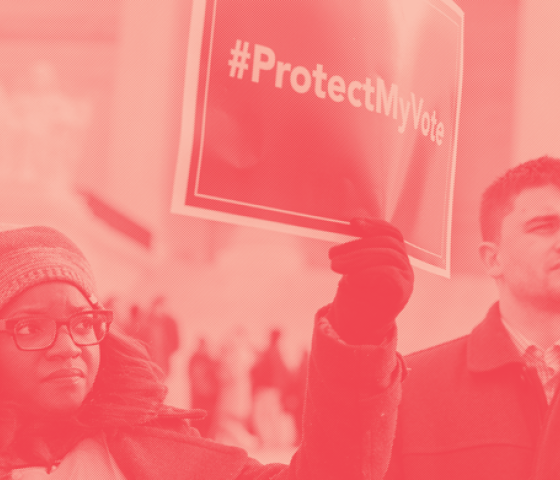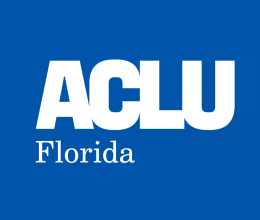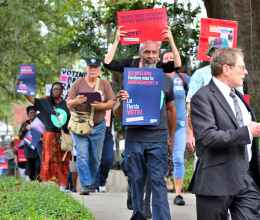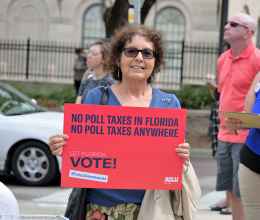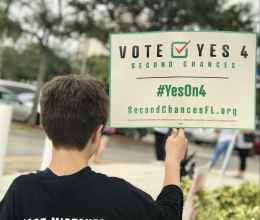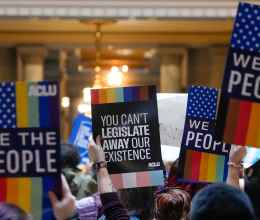This post is also published in Miami Herald and South Florida Sun Sentinel.
For months, Gov. Ron DeSantis has claimed to support voter restoration, but everything he’s done until this point has undermined the goal of ensuring all Floridians have equal access to the ballot box.
After the passage of Amendment 4 in November 2018, which restored the right to vote to as many as 1.4 million returning citizens, many Floridians across the state expected to register to vote beginning in January 2019. This historic occasion marked the end of lifetime felony disenfranchisement in Florida and paved the way for so many of our loved ones to make their voices heard in a state that for far too long denied them the ability to fully participate in our communities.
Then, Gov. DeSantis and the Florida Legislature stepped in, passing Senate Bill 7066 into law, an unconstitutional poll tax that eliminated the right to vote for hundreds of thousands of people in our state.
On Friday, DeSantis announced that his administration would appeal an October ruling by a federal court that, in addition to granting 17 plaintiffs their right to register and vote in Florida elections, ruled the denial of the right to vote cannot be based on someone’s inability to pay.
In doing so, DeSantis flip-flopped on this crucial voting rights issue — something he has done repeatedly over the past year.
First, DeSantis said the Legislature needed to enact “implementing language” for Amendment 4, although Amendment 4 is self-executing. Taking their cue from the governor, a majority of the legislature passed SB7066, which required total payment of legal financial obligations as a new condition before automatically restoring voting rights to eligible returning citizens.
This action by the governor and Legislature blatantly undermined Amendment 4 and the will of 5.2 million Florida voters who passed the amendment into law.
When DeSantis signed SB7066 into law June 28, he called Amendment 4 a “mistake” in his signing statement. Immediately upon signing, voting rights and civil rights groups, including the ACLU of Florida, filed a lawsuit challenging the law and subsequently filed a request for preliminary injunction to block SB7066 from going into effect.
Months later, following our hearing to block the poll tax law and a ruling in our favor, a spokesperson for Gov. DeSantis curiously claimed that the federal court ruling aligned all along with the governor’s own position on Amendment 4.
“Today’s ruling affirms the governor’s consistent position that convicted felons should be held responsible for paying applicable restitution, fees and fines while also recognizing the need to provide an avenue for individuals unable to pay back their debts as a result of true financial hardship. The Governor will consider options put forward on addressing a pathway for those who are indigent and unable to address their outstanding financial obligations.”
But why would DeSantis appeal a ruling that he said “affirms’ his own position? That would be nonsensical. In fact, DeSantis argued before a federal court that inability to pay should bar someone from voting. By appealing the federal court’s position, DeSantis flips back to his old position that one’s inability to pay means one’s inability to vote.
In addition to appealing the federal court decision, the governor went on to attack the 17 brave individuals who put their story and experiences in the public to fight for voting rights and won their right to register and vote. In a statement released by the governor’s spokesperson, the governor accused the plaintiffs of “attempting to use the court process to rewrite the scope and original intent of the amendment.”
Why does Gov. DeSantis say he is defending the rights of returning citizens one day and attacking them next? We don’t know.
What we do know, with certainty, is the effect of Gov. DeSantis’s actions on voting rights. The effect is to undermine the will of more than 5 million Florida voters, to create an unconstitutional pay-to-vote poll tax, and to weaken our democracy.
A version of this op-ed appeared in Florida Politics and the Florida Phoenix.
